 Governor Inslee signed a bill that provides protection for farmers and farmworkers against three years retroactive pay and the class action lawsuits that were making these unfair demands. The nearly 40 lawsuits against farmers stemmed from a Supreme Court decision that said dairy farmworkers need to be paid overtime. When Senator King proposed Senate Bill 5172 it was to protect farmers against these lawsuits and their demands. Hundreds of farmworkers spoke up explaining how these demands would destroy their jobs. Labor activists fought against this and through their mouthpiece, Senator Saldana, they amended the bill to demand three years back pay for overtime for all farmworkers, plus 12% interest. If that had passed it would have destroyed most farms in the state and with that most of the 100,000 plus farmworker jobs. Farmworkers and farmers spoke out against it, and the Senate and then House overwhelmingly rejected the effort by labor leaders to destroy farms and jobs. How do they call this a success? Because the bill included the provision to require overtime for all farmworkers phased in over several years. In the fight to force farmers to pay backpay for overtime, the labor activists and their legislative allies demonstrated they have no interest in what farmworkers want or what is in their best interests. If you care, watch the videos and see them speak for themselves. Now, the question will be whether our lawmakers will listen to labor leaders who show no regard for the best interests of workers, or the workers themselves. Workers have repeatedly explained how requiring overtime will cause them to lose pay, will make their lives more difficult and complicated, and force them to find second jobs. THEY DON'T WANT IT. If you question that, we encourage you to talk to them. Labor activists are fighting for political agendas harmful to farms and workers. Lawmakers in this bill showed when pressed they will ignore the demands of labor leaders when it harms those they say they are trying to help. We fully expect on the issue of overtime, they will do the same. Governor Inslee signed the farmworker protection bill, 5172, and received the congratulations from President Biden as this statement from the White House shows.
This bill does indeed protect farmworkers from the farm and job destroying demands of labor leaders. They are now claiming victory even though their effort to get three years back pay was resoundingly defeated! The UFW did the same when they walked away from a ten year old lawsuit with absolutely nothing: Victory! The bill did include a multi-year phase-in for overtime pay for farmworkers, and this is what prompted the president's praise. But, if you watch the videos below or take the time to talk to farmworkers you will see this may be a win (in the face a bigger defeat) for labor leaders, but it is a big loss for farmworkers. Will lawmakers listen to farmworkers and what helps them, or will they continue to pretend that labor leaders represent the interests of farmworkers when this bill showed so clearly they don't. 5/5/2021 Farmworkers Thank Legislators for helping save their jobs. Now ask them to help save their pay.Read Now
Critics say guest workers are underpaid. |
| El programa de trabajadores temporales proporciona un pago más alto tanto para trabajadores extranjeros temporales como para los trabajadores domésticos, además de el nivel más alto de protección para los trabajadores en cualquier sitio. Obtenga información de la realidad de este programa importante aquí. |
The guest worker program provides higher pay for guest and domestic workers, plus the highest level of protection for workers anywhere.
Get the facts about this important program here.
Get the facts about this important program here.
Listen to Juan tell his story and speak about his passion for farmworker justice:
"As a former farm worker who has had several executive positions with leading companies in the Northwest, I give my full support to the Protect Farmworkers Project. I worked for many years with farmers in Eastern and Western Washington who provided me with work and an opportunity to succeed in life. I am so sad that some are being unfairly attacked. Farmers are far from perfect and I am concerned that in a few cases their workers have not been treated properly. But farmers are facing an increasing shortage of qualified farm workers and the guest worker program helps fill that gap while providing very valuable work opportunities for Mexican families. I am proud to be the Labor Policy Adviser on the Farmworker Justice Project."
|
Juan Baldovinos
|
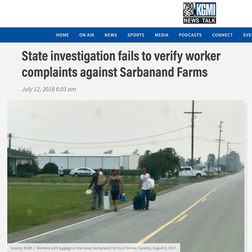
L&I also found no evidence workers were exposed to pesticides and was later found to have levied a larger than normal fine against the farm for missed breaks due to “publicity” surrounding the worker’s death.
Read the story on KGMI: https://kgmi.com/news/007700-state-investigation-fails-to-verify-worker-complaints-against-sarbanand-farms/
Read the story on KGMI: https://kgmi.com/news/007700-state-investigation-fails-to-verify-worker-complaints-against-sarbanand-farms/
3/26/2018
Sumas berry farm faced three intensive Labor & Industry investigations. What did the investigators find?
Read Now
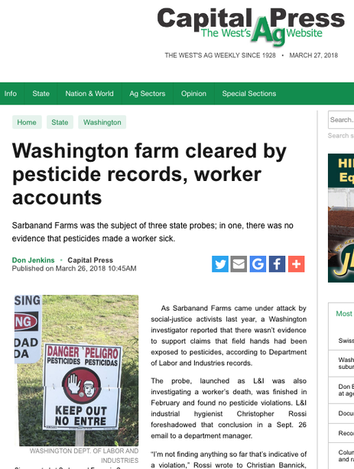
One more investigation by the Washington State Department of Labor & Industries of the Sumas berry farm shows the accusations against them are false. Here's the story in the March 26 issue of Capital Press.
This time it was a complaint filed by a worker one month after the incident supposedly happened. He said he smelled chemicals and got a headache. This triggered a third L&I investigation and found no evidence of pesticide exposure.
After three intensive investigations caused by the numerous accusations against the farm by anti-guest worker activists the only thing the state investigations found was the farm had missed one rest break and served one meal late. Huh? How many rest breaks have you missed at work? If your employer was required to serve you your meals, how much would they be fined if one was served late? $150,000? That's how much the Sumas farm faces in fines because of the two "violations."
The political pressure put on the Department by these activists is without question the cause of this excessive penalty. The Department risks losing credibility even as the numerous and continuously repeated false accusations of the activists leaves them with no credibility except with their dedicated few who refuse to face the facts.
This time it was a complaint filed by a worker one month after the incident supposedly happened. He said he smelled chemicals and got a headache. This triggered a third L&I investigation and found no evidence of pesticide exposure.
After three intensive investigations caused by the numerous accusations against the farm by anti-guest worker activists the only thing the state investigations found was the farm had missed one rest break and served one meal late. Huh? How many rest breaks have you missed at work? If your employer was required to serve you your meals, how much would they be fined if one was served late? $150,000? That's how much the Sumas farm faces in fines because of the two "violations."
The political pressure put on the Department by these activists is without question the cause of this excessive penalty. The Department risks losing credibility even as the numerous and continuously repeated false accusations of the activists leaves them with no credibility except with their dedicated few who refuse to face the facts.

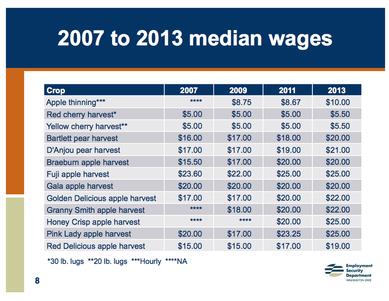
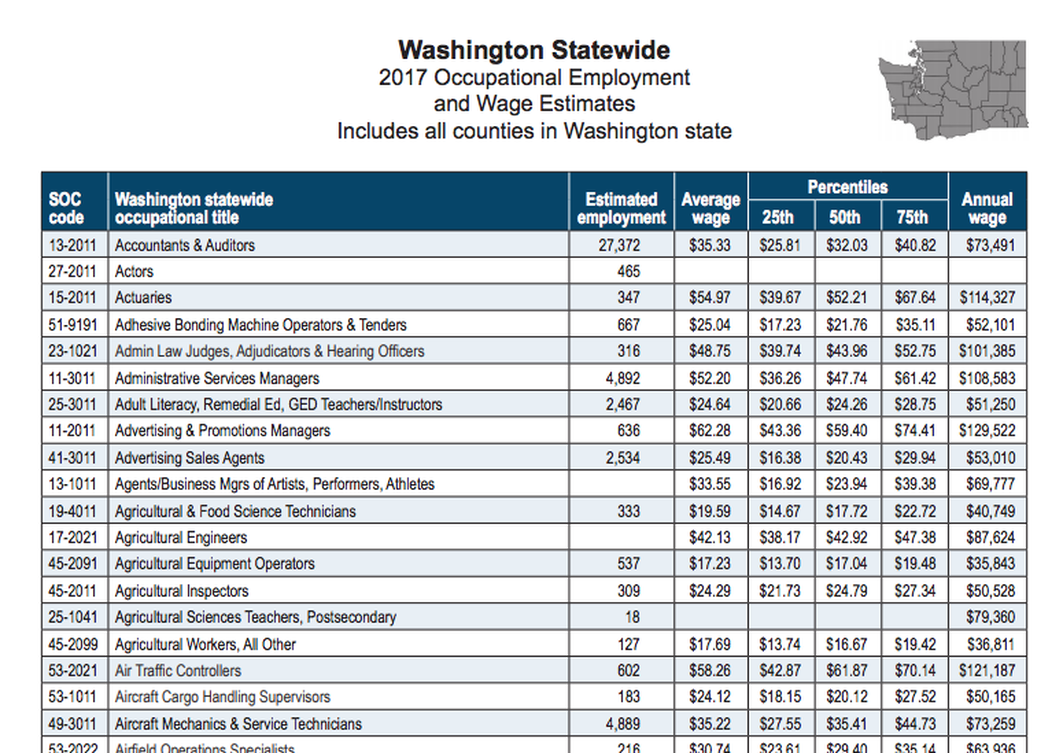
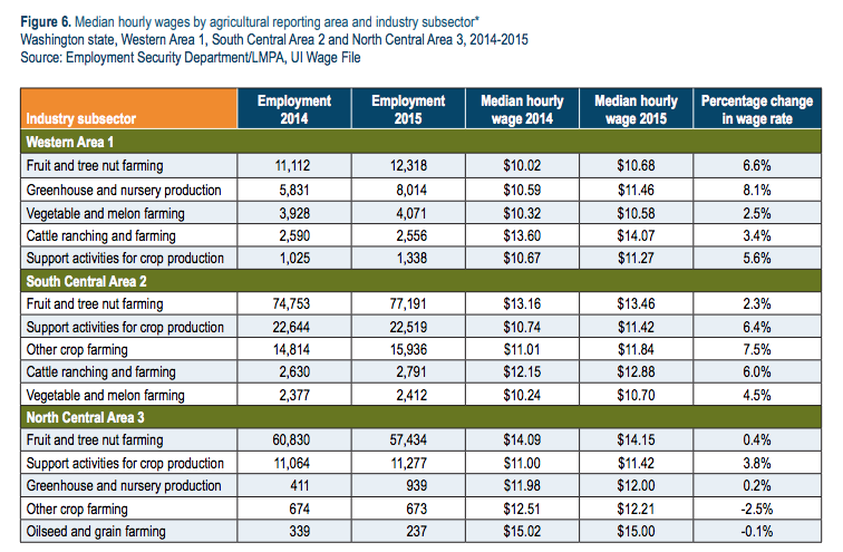

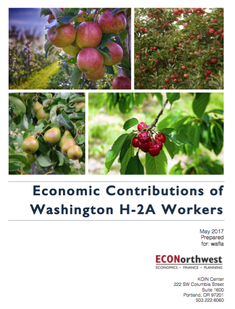
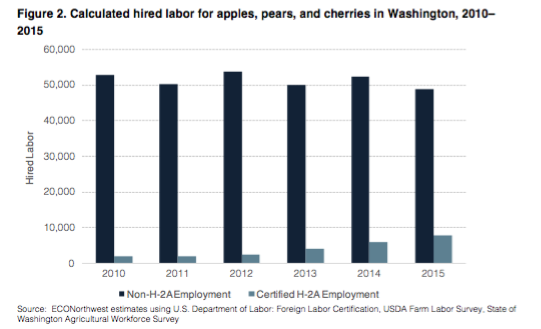

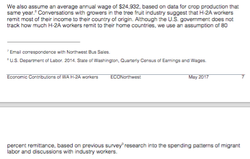
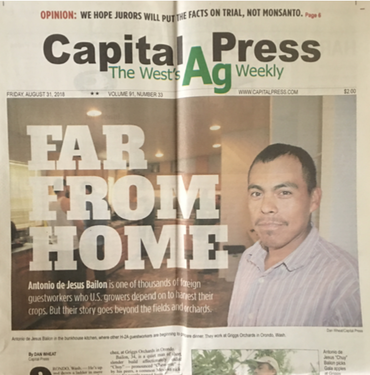
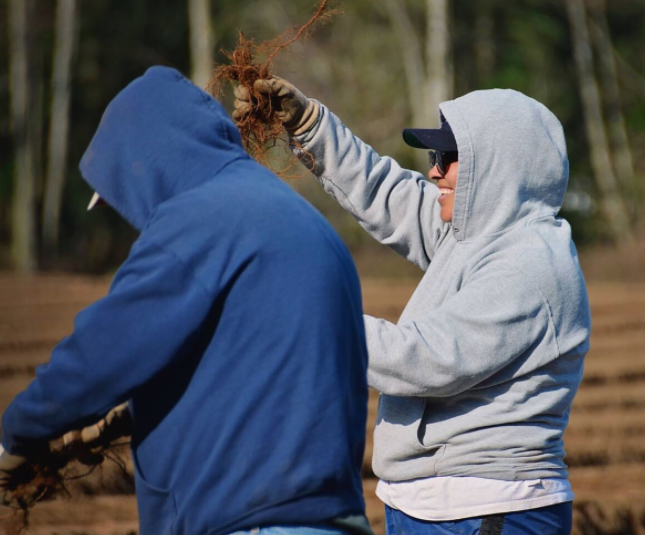
 RSS Feed
RSS Feed